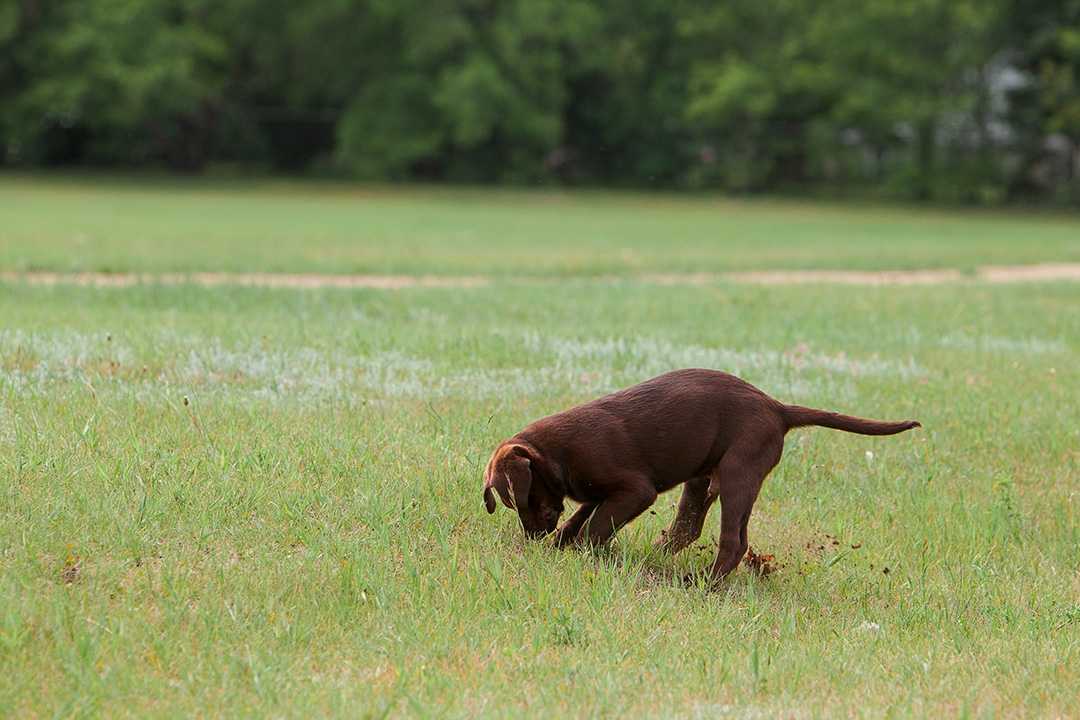
Public needs to be aware of risks associated with newly approved rodenticide
Animal owners and veterinary staff need to be aware that zinc phosphide, a highly toxic chemical compound, is now approved for use as a rodenticide in Saskatchewan.
By Dr. Vanessa CowanThe Saskatchewan Ministry of Agriculture recently approved the use of zinc phosphide instead of strychnine, which is no longer registered as a rodenticide in Canada, to control Richardson’s ground squirrel populations.
In Saskatchewan, oats and pellets laced with zinc phosphide in two per cent formulations are approved for rodenticide use. Livestock producers and landowners typically place baits with rodenticides such as zinc phosphide in pastures and fields during the spring when the burrowing rodents emerge from winter hibernation.
When zinc phosphide comes into contact with stomach acid, it produces phosphine gas — a multi-organ system poison that causes severe side effects:
- gastrointestinal signs such as severe vomiting, often with blood
- neurologic signs including seizures, coma and paralysis
- respiratory distress
- cardiac arrythmias
- liver failure
These side effects can happen in as little as 15 minutes after ingesting the poison and lead to eventual death.
Fortunately, zinc phosphide doesn’t contaminate the environment and breaks down when it’s exposed to water or moist soil. Unlike strychnine, zinc phosphide doesn’t accumulate or persist in animal tissue — meaning that it’s less likely to cause secondary poisoning in other animals such as dogs, birds, skunks or other non-targeted wildlife that ingest poisoned animals.
As with any poison, there are risks linked to zinc phosphide’s use that people need to recognize.
- There’s no specific antidote available to treat poisoned animals. If livestock or pets accidentally ingest zinc phosphide bait, treatment becomes challenging due to multi-organ involvement.
- Inhaling phosphine gas emitted from poisoned animals also represents an extreme health risk since zinc phosphide is highly toxic for humans. Owners transporting poisoned pets to the hospital and veterinary staff treating poisoned animals are at greatest risk of poisoning.
- Saskatchewan doesn’t currently have an established analytical method available for zinc phosphide to confirm poisoning cases, which may lead to an increase in malicious poisonings of pets or other animals.
Safety measures
Before handling zinc phosphide, carefully read instructions on the product label for more details about safety measures and proper bait placement. As a preventive measure, users should wear gloves and protective clothing to avoid skin contamination.
If the rodenticide comes in contact with skin, thoroughly wash hands and other affected areas. As well, it’s critical to store zinc phosphide-laced bait away from all livestock, pets and children.
If you suspect that an animal or human has been poisoned with zinc phosphide (or is suspected of ingesting the rodenticide), alert veterinary and human health personnel so they’re aware of the health risks.

Before attending to the patient, make sure the area is well-ventilated to avoid inhaling toxic gas. Open windows and doors, use fans or go outside to ensure proper air circulation. In a hospital or veterinary clinic, make sure to ensure that other patients and staff are not exposed to toxic gas.
If available, wear a properly fitted respirator as other masks don’t prevent exposure and don gloves to avoid contact with the patient’s vomit.
Emergency poison information for animals: contact your local veterinarian or call 1-855-764-7661 (Pet Poison Helpline, available throughout North America, incident fee applies).
Emergency poison information for people: call 911 or call 1-844-764-7669 (toll-free).
For more details about zinc phosphide and other pest control measures, view the Government of Saskatchewan fact sheet online.
Dr. Vanessa Cowan is an assistant professor of toxicology in the Western College of Veterinary Medicine’s Department of Veterinary Biomedical Sciences.
